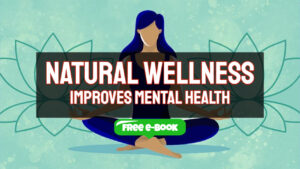Learn How to Be Upbeat and Positive
Even the most challenging difficulties may be overcome if you maintain your positive outlook throughout the situation. Life is full of ups and downs that are continual.
Optimism isn't about seeing rainbows and butterflies around every corner; it's about learning from experiences, discovering minor positives, and recognizing fresh opportunities – even when things are difficult.
It is commonly considered that optimistic people are born or raised that way. On the other hand, optimism is a skill that can be learnt and cultivated at any age.
With that in mind, we've compiled a list of strategies to help you tackle any circumstance positively and proactively.
It's a good idea to keep a positive attitude even while going through a difficult period.
What Exactly Is Optimism?
In a nutshell, optimism refers to a person's ability to maintain hope and belief in the outcome of a situation in the face of hardship.
Optimists can generally find something positive in every situation and believe that a good ending is more likely than a negative.
If you're an optimist, you understand that you can't control everything, but you can influence how you think about and react to it. When a problem develops, you usually concentrate on resolving it rather than becoming engrossed in destructive emotions.
Furthermore, you see every difficulty as the result of a specific set of circumstances, rather than believing that problems occur because the world is conspiring against you.
What Is the Significance of Optimism?
Optimists can usually perceive the possibility of change in any situation, which can help them move on. There are numerous links between optimism and good health. According to research, positive conduct can lead to the following outcomes.
Increased participation in healthy habits such as exercise and eating a well-balanced diet.
A reduction in unhealthy behaviours such as smoking and binge drinking.
They have improved sleep quality.
A more robust ability to deal with life's stresses and setbacks.
A broader social network – because people prefer to spend time with optimists rather than pessimists.
Tips for developing the gift of optimism are provided in the following paragraphs.
Every day, list a few things you are grateful for and write them down in a journal.
It's relatively uncommon for one lousy thought to trigger another, and before we realize it, we're trapped in a downward spiral of pessimistic ideas with no way out.
One method to interrupt the cycle and inject positivity into your life is to Write one item you are grateful for every day.
This can range from the roof over your head and the morning sun coming through the blinds to a pleasant conversation with a buddy.
Even in the darkest of times, we can generally find something to be grateful for. It's vital to remember what we have instead of focusing on what we don't have or can't alter.
Those who have endured life-altering injuries or illnesses are advised to focus on what they can still do rather than what they cannot.
The more time we devote to practise thankfulness, the less time we will have to devote to negative thinking.
Consider your viewpoint as a decision.
It's easy to become so accustomed to negative thinking that we lose sight of the fact that there is another way to think. We have numerous options in life. One of them is to be optimistic.
We can choose to spend our evenings talking on the phone with a friend or drinking wine in front of the TV, just as we can choose to have pleasant or negative thoughts.
It can be challenging to realize that we can change our thought patterns even if we cannot influence what happens to us. But once we recognize this, it becomes much easy to practise optimism like we would any other skill.
Example
If your automobile breaks down on the way to the grocery, you have two options.
One possible unfavourable reaction is:
“Now I can't get my groceries, and I'm waiting for someone to come to tow me. My day has been wrecked.”
When things like these go wrong, you may feel justified in being irritated and unhappy – and you are. However, keep in mind that this thinking will not improve your problem. Instead, it raises the level of stress hormones in your body while doing little to help you manage your current concerns.
On the other hand, an optimistic answer may be first to acknowledge the facts of the issue, such as the fact that your car has broken down and you won't be able to continue your drive to pick up your groceries. This may irritate you at first, which is natural. But you don't let it bother you.
As a person who sees the bright side, you will try to think of what you can do next, such as calling roadside assistance or asking a friend or family member for aid.
An optimistic person will be able to see the big picture. Yes, it's frustrating, but there are many things to be thankful for, including:
the knowledge that you have someone you may call for assistance
You can buy a car and go shopping because you can afford it.
You might also consider different options for getting your groceries.
You might be able to walk to the store and pick up your groceries while you wait for help (provided you parked your car in a safe location), or you might be able to have your food delivered.
“You may not be able to control all the circumstances that happen to you,” Maya Angelou famously stated, “but you can choose not to let them limit you.”
Recognize Negative Ideas
If you wish to break away from existing negative thinking patterns, it can assist in acknowledging them when they arise, so they don't loop again.
The goal here is not to eliminate negative ideas but to keep them from interfering with your overall well-being and preventing you from moving forward.
If you have to do a video interview and have never done one before, it's normal to think, “I'm sure I'll suck at this and never get the job.”
This approach can impact how effectively you prepare for the interview and how you present yourself. You may believe that preparing too much is pointless since you will not come across well in the video. However, this thought process might harm your chances of succeeding in the interview, but it can also harm your confidence and self-esteem.
Instead of expecting the worst, it is critical to reason negative beliefs and adopts a healthier, more realistic perspective of the issue.
Even though I've never done a video interview before, “I'm looking forward to giving it a go,” for example. Whatever happens, I'll be able to learn from it and better understand how video interviews function, which will be important in the future.”
It is clear that optimism does not always imply the best possible conclusion; it can also refer to turning around excessively pessimistic beliefs.
Consider a Bright Future
It's risky to be overly hopeful about the future because you are frightened of being disappointed, let down, or that things will not go as planned. We frequently believe that setbacks will be less painful if we psychologically prepare for the worst-case situation.
In reality, nothing in life is definite. If we constantly catastrophize circumstances and plan for the worst-case scenario, we may unknowingly contribute to some of the things we fear occurring.
For example, if you hear your firm is cutting costs and tell yourself you're about to be laid off (even though you haven't been told you'll be directly affected by the cuts), you may be less productive.
Though your firm has never considered putting you off but notices that your work level has decreased, they may reconsider laying you off – even if it has never been discussed before.
The mind is mighty, and in many circumstances, how we imagine our future can genuinely influence the outcome. Many Olympians utilize visualization to perform at their best in their sport, and research has shown that people who imagine themselves successfully doing a task can boost their performance.
For example, maybe you want to go to the gym but are too ashamed or believe you'll be horrible. These concerns can often be enough to deter you from going to the gym at all. Instead, rethink those beliefs and envision yourself working out at the gym and receiving the advantages, and you'll be far more likely to sign up, go, and enjoy it.
Make an inspirational vision board to help you discover, visualize, and realize your goals.
Spread Happiness
Making people happy might affect your mood. That doesn't mean you should try to please everyone all of the time, but going out of your way to thank someone or tell a loved one how much you appreciate them can significantly impact how they feel.
And, while it's essential to make people happy, don't forget to compliment yourself as well. Take a few minutes at the end of each day to reflect on how the day went and offer yourself appreciation – even for the minor things.
Praise yourself for preparing a wonderful meal or making an effort to go for a stroll. “I did a nice job today,” you might tell yourself, can go a long way.
Spend time with folks who are upbeat.
Whether we realize it or not, the company we keep can significantly impact how we perceive life. Spending time with pessimistic people who constantly express negative views makes it easier to acquire some of those thoughts – or to perceive the world in general in an even more negative way.
Negativity spreads quickly. Consider spending less time with negative people and more time with those who are pragmatic, proactive, and upbeat. Your energy levels are going to skyrocket after this!
Last but Not Least
Optimism is a valuable talent to develop and apply in various settings. However, avoid taking it to conceal your emotions and give the idea that you are doing well when you are not. We are all human beings with sentiments. You can express yourself by smiling and laughing; if you want to cry, express yourself.
Even though life appears unfair or complicated, the essential thing is to take a deep breath and continue moving forward. Remember that few sentiments or situations survive forever and that there will always be a better day.
The post Learn How to Be Upbeat and Positive appeared first on https://gqcentral.co.uk
















